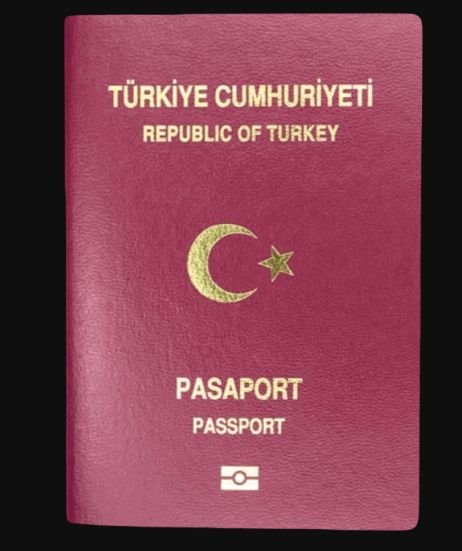INFORMATION
The European Passport: Your Gateway to Opportunity in the EU
For many, the term “European Passport” conjures images of seamless travel, boundless career opportunities, and a high quality of life across a vibrant continent. While there isn’t a single, unified “EU passport,” holding a passport from any of the 27 member states of the European Union (EU) grants you the incredible privileges and freedoms associated with EU citizenship.
This guide explores what a European passport entails, its significant benefits, and the common pathways to obtaining one, all designed to help you understand this valuable document and its implications.
What is a “European Passport”?
When people refer to a “European Passport,” they are typically talking about a passport issued by one of the 27 sovereign countries that are members of the European Union. These passports, while bearing the individual country’s name (e.g., “Republic of Ireland,” “Federal Republic of Germany,” “Republic of France”), are standardized in design and grant the holder specific rights under EU law.
It’s crucial to understand that:
It’s not a single EU-issued document: Each passport is issued by a national government.
It signifies EU citizenship: The key benefit is the automatic conferral of EU citizenship upon becoming a citizen of an EU member state.
Key Benefits of Holding an EU Passport (EU Citizenship)
Possessing an EU passport unlocks a wide array of advantages that extend far beyond simple travel:
Freedom of Movement (Travel, Live, Work, Study):
Unrestricted Travel: Enjoy visa-free travel to over 170 countries worldwide, including seamless movement across the 27 EU member states and the four European Free Trade Association (EFTA) countries (Iceland, Liechtenstein, Norway, Switzerland) which are part of the Schengen Area.
Right to Live and Work: As an EU citizen, you have the right to live, work, and establish a business in any of the 27 EU countries, as well as Iceland, Liechtenstein, Norway, and Switzerland, without needing a separate work permit or visa. This opens up vast career opportunities across diverse economies.
Access to Education: Benefit from preferential tuition fees (often domestic rates) and easier admission to universities and educational institutions across the EU.
Access to Healthcare and Social Benefits:
European Health Insurance Card (EHIC): Access state-provided healthcare during temporary stays in other EU/EEA countries and Switzerland, under the same conditions and at the same cost as insured nationals of that country.
Social Security: Rights to social security benefits (e.g., unemployment, pension) are often transferable or recognized across EU member states.
Consular Protection:
If you are in a non-EU country where your own country does not have an embassy or consulate, you have the right to receive consular protection from the embassy or consulate of any other EU member state.
Political Rights:
The right to vote and stand as a candidate in municipal elections and European Parliament elections in your EU country of residence (even if it’s not your country of nationality).
Economic Opportunities:
Access to the vast European Single Market, one of the largest economic blocs in the world, facilitating business and trade.
Easier access to banking and financial services across the EU.
How to Obtain an EU Passport (Pathways to EU Citizenship)
Gaining an EU passport means acquiring citizenship of an EU member state. The pathways vary by country but generally include:
Citizenship by Descent (Jus Sanguinis):
Many EU countries grant citizenship based on the nationality of your parents or grandparents, even if you were born elsewhere. This is a common route for individuals with European ancestry (e.g., Irish, Italian, Polish citizenship by descent).
Requirements vary, often involving proving lineage through birth and marriage certificates.
Citizenship by Naturalization:
This is the most common route for foreign nationals. It typically requires:
Legal Residence: Living legally in an EU country for a specified period (e.g., 5-10 years, depending on the country).
Language Proficiency: Demonstrating a certain level of proficiency in the national language.
Integration: Showing evidence of integration into society (e.g., knowledge of culture, history).
Financial Stability: Proving you can support yourself without relying on public funds.
Citizenship by Marriage:
Marrying a citizen of an EU member state can often expedite the naturalization process, though it still typically requires a period of legal residence and other conditions.
Residency by Investment (RBI) leading to Citizenship:
While direct “Citizenship by Investment” (CBI) programs (often referred to as “Golden Passports”) have been largely phased out or are under intense scrutiny by the EU, some countries still offer “Residency by Investment” (RBI) programs (often called “Golden Visas”).
These RBI programs grant residency in exchange for significant investment (e.g., in real estate, businesses, or government bonds). This residency can eventually lead to citizenship after a substantial period of continuous residence and meeting all other naturalization criteria (language, integration, etc.).
Important Note: Always consult with legal experts specializing in immigration law for accurate and up-to-date information on these complex and evolving programs.
Navigating the Process
Obtaining an EU passport can be a complex process, often requiring extensive documentation and adherence to specific national laws. It is highly recommended to:
Research specific country requirements: Each EU member state has its own unique citizenship laws.
Consult with immigration lawyers: Professionals specializing in EU immigration can provide tailored advice and guide you through the application process.
An EU passport represents more than just a travel document; it is a key to expanded personal and professional horizons within one of the world’s most dynamic regions. Understanding its benefits and pathways is the first step toward unlocking these significant opportunities.

